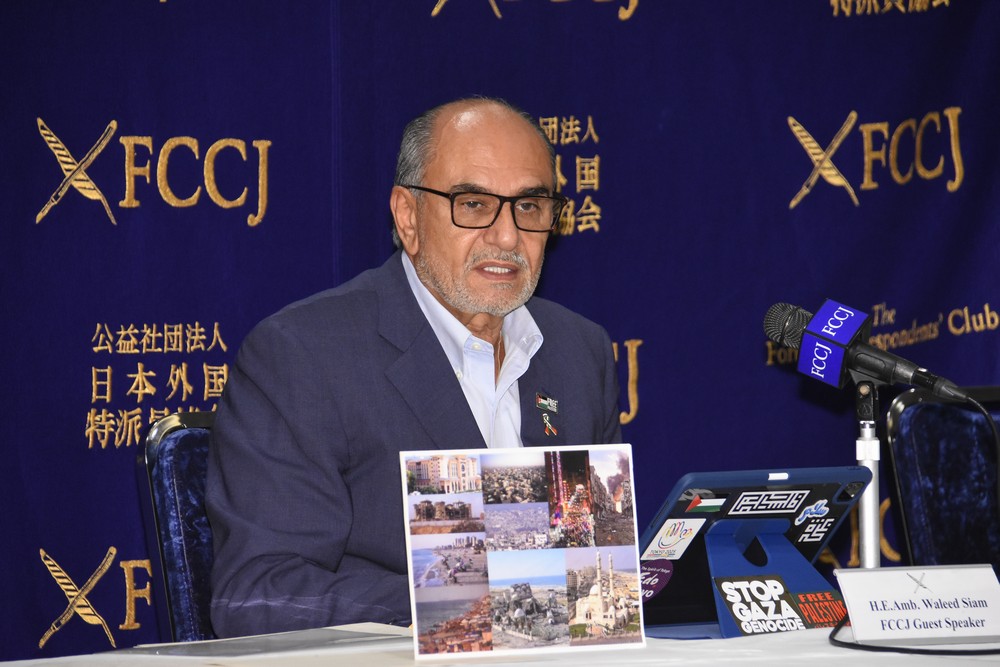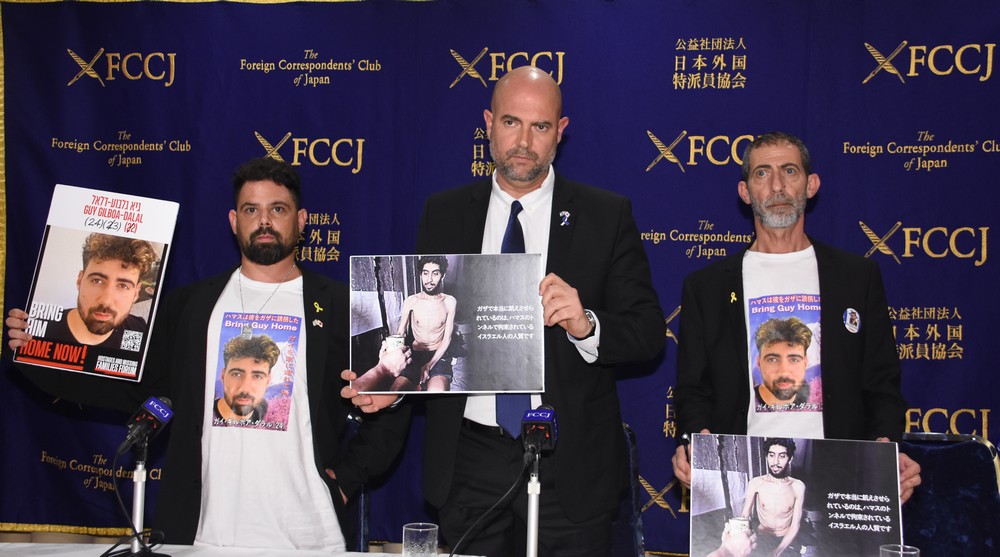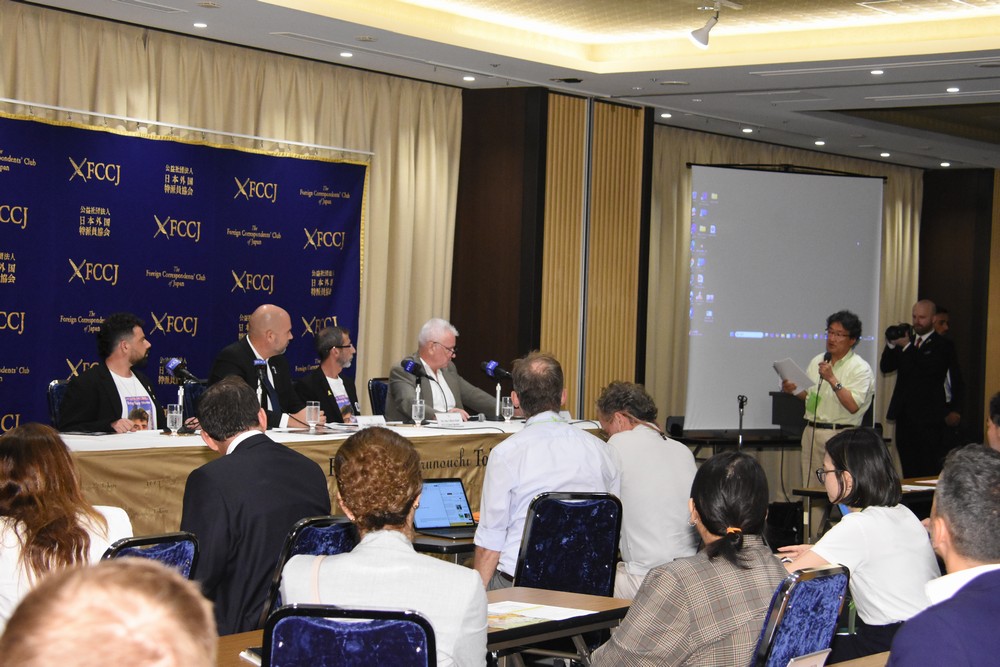Issue:
November 2025
The Professional Activities Committee is vital to the FCCJ’s journalistic mission

Perhaps the greatest community service the FCCJ has offered over its 80-year history is the speaker events organized by the Professional Activities Committee (PAC) – all of which can be viewed on our YouTube channel.
Yet despite our storied roll of honor, which includes heads of state, Nobel laureates, corporate leaders, scientists, the first man on the moon, Olympic and professional athletes, diplomats, veterans, artists and entertainers, and many, many significant others, the path to a successful speaker or panel event can be precarious.
Our PAC team has worked tirelessly over the decades to bring in the best speakers from Japan and beyond. A lot has to happen behind the scenes before they appear, however: discussions, debates and, finally, a vote. As our media often have different audiences and interests, it can lead to a lack of certainty on who would, or would not, make a strong speaker.
Nonetheless, that is always the aim, and so in the interests of ensuring we have many more years of great PAC moments, allow me to share my own take on PAC’s role after years of emceeing and working alongside guest speakers. I am not currently part of PAC, but have reached out to the committee’s co-chairs for their thoughts.
Setting the news agenda
Generally, great PAC events have three main strengths: timeliness – elections, global conflicts, breaking news, scandals, and anniversaries; strong speakers – charismatic storytellers or well-known leaders, famous or infamous people, and those who have amazing tales of creativity or survival to tell; and the novel and unexpected – a genre that takes in everything from anime and movies to new product releases, as well as the bizarre and insightful from those who work behind the scenes.
Over the past year, I have emceed a panel of Nobel prize winners, war-displaced people, Japan Series champions, IT and trade experts, former heads of state, professors and doctors, and polarizing politicians and diplomats. We have also hosted the cast of the hit TV series Shogun, and every month we feature the best of Japanese film and photography.
However, the club’s brief – to be “where the news is made” – remains our mantra and is key to the historic value of a PAC speaker, many of whom grace photographs in our entrance hall, restaurant, and library.

A great PAC event also features strong questions from the working press and, thanks to YouTube live-streaming, from members of the online audience. Some have said that live-streaming reduces in-person attendances and weakens the quality of events. In response, I believe that the potential audience size and archival value is greater in this digital age, and we often receive excellent questions from YouTube viewers.
Strong moderators also can make an event better by posing follow-up questions, ensuring that the guest understands the question and, on occasion, keeping long-winded or unruly questioners and speakers in check.
Wading into controversy
The traits that make for a disappointing PAC event are equally straightforward: self-promotion – an individual, company, or organization that is trying to sell something or someone; lack of guest vetting or relevance – when a review of a speaker/panel and why they deserve an FCCJ platform is hurried or insufficient; self-censorship – speakers who set restrictions on what they will talk about, which often leads to an underwhelming event.
Speaking in front of the FCCJ banner is an honor, but some guests mainly want a platform and often aren’t familiar with media norms or press conference deportment. A recent example was the head of the firm that conducts Japan’s commercial whaling expeditions. His appearance may have been timely, but he wore a novelty whale hat throughout the press conference, suggested whale oil could cure balding, handled a globe in a manner like Charlie Chaplin in The Great Dictator, and spent most of the event reading prepared materials. I suggest you watch it yourself - with a stiff drink.
There are times when, on reflection, events shouldn’t have been held, or fail to go ahead. That is largely because of a lack of audience interest due to the speaker or their chosen topic, or too little promotion. Despite the great efforts of FCCJ staff and committee members, some guests have no choice but to cancel, while in a few cases the FCCJ calls off an event due to a distinct lack of interest. We always strive to be impartial, but the FCCJ sometimes gets drawn into other individuals’ or institutions’ mudslinging or legal cases. Believe me, we have enough problems without adding to them unnecessarily.
I want to reiterate that in our 80 years, PAC has not always been perfect, but it has certainly tried to be. We have been lucky over the decades to have dedicated staff, a strong PAC committee, and an active domestic and international press that together have hosted some of the most newsworthy moments in modern Japanese history. I did not want this to come across a subjective screed, so I asked our PAC chairs to kindly offer some additional comments.
Eric Johnston said: “We on PAC have little flexibility when it comes to last-minute adjustments on room size. I am not sure whether it's a staff issue (not enough available people to move tables and chairs at the last minute, union issues about who does what work, etc.) or a physical limitation of the space (partitions to divide the room can't be pulled out).
“The result is that PAC approves events of journalistic worth knowing full well the speaker might be addressing a large, mostly deserted room. I may be in the minority, but most speakers who are not famous, or do not have the ego of an opera diva, are perfectly happy with a smaller, more intimate space if it means attendees are closer together in the room, giving it a more lively feel.”

PAC co-chair Martin Fackler said: "PAC is aware that it oversees one of the most essential functions of the club – the planning and hosting of press conferences, and this year it has tried to pick up the pace of events while also broadening their range.
“Over the summer, PAC put together a successful series of press events on topics related to the 80th anniversary of Japan's surrender in World War II. The speakers included the chairman of the Japan War-Bereaved Families Association and a former kamikaze pilot who survived because the war ended before his number came up.
“PAC has also tried to increase press conferences by major Japanese political figures. One was Sohei Kamiya, founder of the upstart nationalist party Sanseito, whose press conference drew 6,300 live viewers online. We have hosted former Prime Minister Noda Yoshihiko and Motegi Toshimitsu of the LDP, who wants to be the next prime minister. PAC has also tried to invite more business leaders, as well as noted analysts and political scientists, to give useful briefings to our journalist members."
If you haven’t been to a PAC event recently, we have a busy autumn schedule, including the upcoming LDP election, a lunch with a Ukrainian sumo wrestler, and many other diplomatic and corporate grapplers. Make your reservations today - we’ll save you a seat near the dohyo.
Dan Sloan is president of the FCCJ

